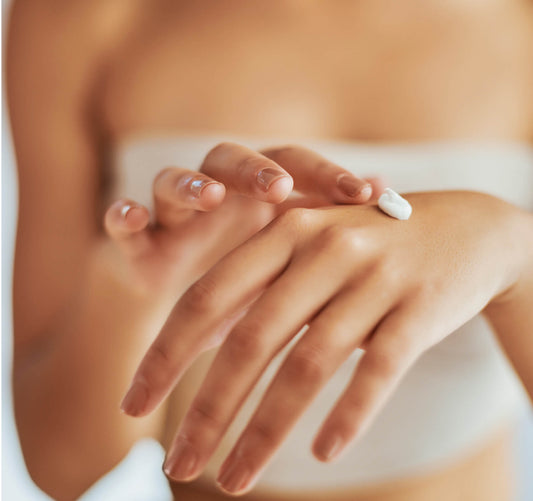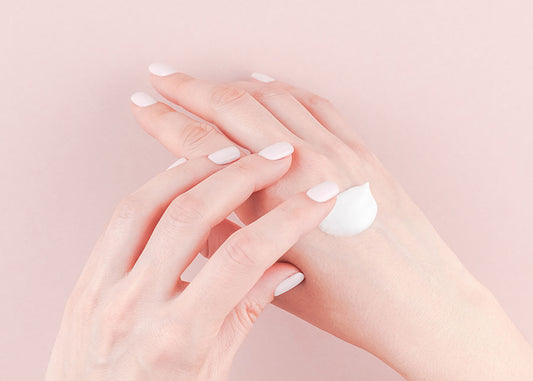Ladies, lots of us spend big bucks on facial creams and other lotions and potions that promise to minimize crow’s feet, lip creases and other wrinkles.
Problem: The latest research shows that our skin would benefit more if we focused on what we put in our mouths rather than in our cosmetics cases.
Alan C. Logan, ND, of Harvard’s School of Continuing Medical Education, explained to me, “The same metabolic factors that contribute to chronic illnesses such as heart disease and diabetes also can damage the skin’s cellular structures, leading to wrinkling. Those factors are highly influenced by the nutrients we ingest.” Here’s what really keeps skin looking young…
Antiwrinkle Foods
Among the chief metabolic factors that harm skin (as well as other body tissues) are chronic inflammation… oxidation (a kind of biological rust)… and high blood sugar. Certain foods help prevent such damage—other foods make it worse.
Evidence: Australian researchers studied the skin of 453 seniors and, in an article in the Journal of the American College of Nutrition, posed the question, “Skin Wrinkling: Can Food Make a Difference?” Their answer, an emphatic yes, identified specific foods and food groups associated with the least and the most wrinkling. According to the study…
Wrinkle preventers : Eggs… fish… fruits (especially apples, cherries, melons and pears)… legumes (especially fava beans and lima beans)… low-fat dairy foods (skim milk, low-fat yogurt)… olive oil and other monounsaturated fats (avocados, nuts)… tea… vegetables (especially dark leafy greens and asparagus, celery, eggplant, garlic and onions)… whole-grain breads and cereals. These foods are high in antioxidant vitamins and phytochemicals that protect skin.
Wrinkle promoters : Butter and margarine… cakes and pastries… high-fat dairy foods (whole milk, ice cream)… potatoes… red meat (particularly processed meats)… and soft drinks (the study did not distinguish between sugar-sweetened and diet soda). Researchers found that these foods were associated with a high degree of photoaging (sun damage).
Another nutritional factor that ages skin is the advanced glycation end-product—with the apt acronym AGE. Dr. Logan explained, “Collagen and elastin are fibrous proteins that help maintain the skin’s firm, supple structure. AGEs are sugar molecules that bind with collagen and elastin, weakening and warping those fibers. AGEs also inactivate enzymes that protect against UV rays.”
To reduce AGEs in your skin…
Avoid sugar. The number-one dietary source of damaging AGEs is sugar—so cut down on candy, cookies, ice cream and other sugary foods.
Cook right. When certain food is cooked using high heat (above 375°F) and no water – for instance, oven-roasted, baked, grilled or fried – AGEs form. “All foods can form AGEs, even vegetables, though the highest levels occur when protein and carbohydrates are combined, such as in baked goods made with eggs and flour,” said Dr. Logan. Best:Steam, boil, stew, use a slow cooker or roast at 350°F or lower.
Add spice. Turmeric, garlic, cinnamon and ginger inhibit AGEs’ ability to bind with collagen and elastin—so use these liberally. You’ll add flavor to your food… and subtract years from your skin.
Skin-smoothing Supplements
Even if you are conscientious about your diet, it can be hard to get sufficient amounts of the most powerful skin-protecting nutrients from food alone. That’s why Dr. Logan and I recommended taking any or all of the following supplements daily (with your doctor’s OK), continuing indefinitely.
Alkalinizing your body and giving it antioxidants definitely promotes healthy aging of the skin. We use in my practice Mighty Maca which has many health benefits and helps you beautify and energize from the inside out!
Multivitamin/mineral. Choose a brand that includes 100% of the recommended daily value for vitamin A, which helps prevent dryness…vitamin C, vitamin E and selenium, essential for the manufacture and function of collagen… and zinc, which protects against the sun’s damaging UV rays. My favorite is our Superwoman Daily Dose Monthly Pack.
Fish oil. This is rich in omega-3 fatty acids that shield skin from UV rays… protect against oxidation… and improve skin elasticity. Take a daily fish oil supplement that supplies 1,000 mg to 2,000 mg ofeicosapentaenoic acid (EPA), the omega-3 that best protects collagen.
Gamma-linolenic acid (GLA). This fatty acid enhances EPA’s skin-saving effects. Dosage: 250 mg to 500 mg of GLA from borage oil or evening primrose oil, taken along with your fish oil.
Probiotics. These “friendly” intestinal bacteria not only support digestive health, they also combat inflammation and oxidation throughout the body—including in the skin. Dr. Logan explained, “Probiotics help prevent certain harmful substances from passing through the gut wall and entering the bloodstream, where they could provoke a systemic inflammatory response and contribute to oxidative stress.”
Wishing you health and happiness and beautiful skin!
Anna Cabeca, DO, FACOG, ABAARM
Source: Alan C. Logan, ND, is a board-certified naturopathic physician and an invited faculty member in Harvard’s School of Continuing Medical Education in Boston… and author or coauthor of four books, including Your Skin, Younger and The Clear Skin Diet (both from Cumberland House).



